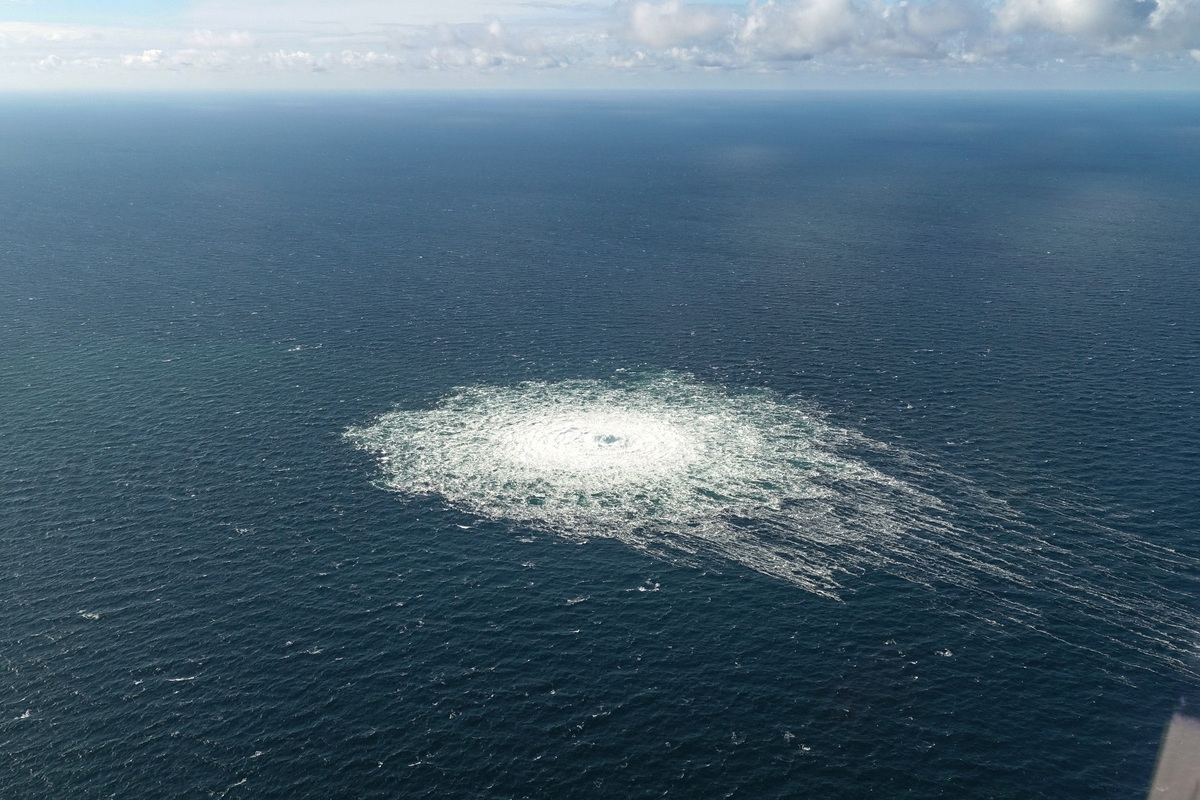New York Times Nord Stream report raises more questions than it answers: China Daily editorial
chinadaily.com.cn | Updated: 2023-03-09 20:29

According to a report published in The New York Times on Tuesday, "new intelligence reviewed by US officials suggests that a pro-Ukrainian group carried out the attack on the Nord Stream pipelines last year".
Yet the newspaper goes to great lengths in the article to apparently dissociate itself from that conclusion, perhaps concerned about where that information is coming from. As such, the report seems to have been published with the sole purpose of easing the pressure that has been mounting on the Joe Biden administration since investigative journalist Seymour Hersh published a report last month claiming that the United States carried out the sabotaging of the pipelines with the assistance of Norway. A charge the US government denied immediately, but has subsequently maintained a studied silence over. As have US media outlets, until this New York Times report.
The report comes after the United Nations Security Council held a special discussion on the necessity of a multilateral probe into the sabotaging of international civilian energy infrastructure.
Kyiv will undoubtedly feel aggrieved by the report, not just because the report claims it directly approved the sabotage or was involved in it while keeping the US in the dark, but because it highlights that Kyiv and Washington are not always on the same page, and Washington will hang Kyiv out to dry if push comes to shove.
It indicates that despite Ukraine's dependence on the US for military, intelligence and diplomatic support, Ukrainian officials are not always transparent with their US counterparts about their military operations, "some of which have frustrated US officials", who believe that they have risked alienating European allies without improving Ukraine's position on the battlefield. One of these was a car bomb near Moscow in August that killed Daria Dugina, the daughter of a prominent Russian nationalist. Although Kyiv denied any involvement, "US intelligence agencies eventually came to believe that the killing was authorized by what officials called 'elements' of the Ukrainian government".
The report goes on to say that "After the Nord Stream operation, there was hushed speculation — and worry — in Washington that parts of the Ukrainian government might have been involved in that operation as well".
Despite this, given the extent to which Kyiv relies on the US for its military hardware and know-how, whether such elements would have the wherewithal to sabotage the pipelines by themselves is a question that remains to be answered.
It should not be forgotten that Ukraine has no coastline with the Baltic Sea. That means, if Kyiv "elements" really did it, they did so in busy international waters close to Denmark, Norway, Sweden and Germany without being spotted. Nor should it be forgotten that a marine drill of the North Atlantic Treaty Organization took place in exactly those waters a few months ahead of the blasts, offering both the means and opportunity for laying the charges. As such, the report does not let the US off the hook.
Before any evidence is forthcoming to the contrary, The New York Times' report is nothing but a poor publicity campaign by the US government that only serves to further lay the blame at its door.
























